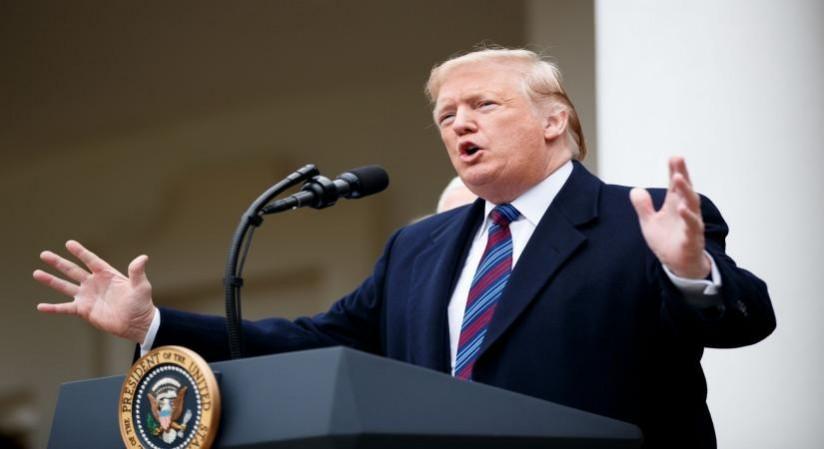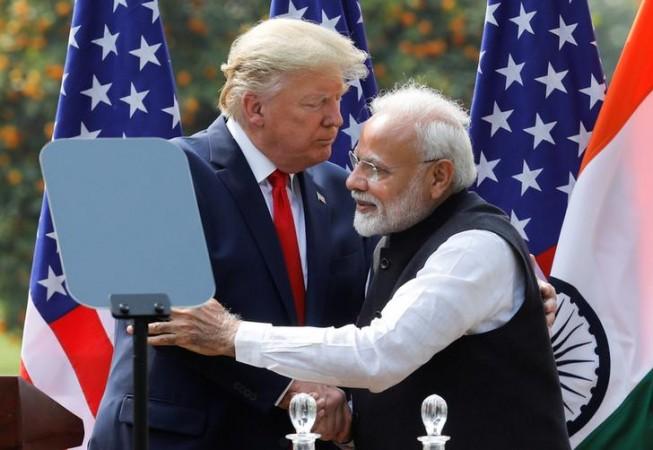
Leaders from across India's political spectrum have expressed strong disapproval of U.S. President Donald Trump's recent decision to impose a 25% tariff on India for its continued purchase of oil from Russia. This move, which would increase the total tariffs on Indian goods to 50%, has been met with widespread criticism and calls for retaliatory measures. Indian politicians have questioned the legitimacy of Washington's authority to penalize sovereign nations for pursuing independent foreign policies.
They have warned that if the tariffs are not rescinded, India will consider countermeasures. The sentiment is that Trump is unfairly targeting India, despite other countries like China and Turkey continuing to import oil from Russia without facing similar penalties.
India has officially described the U.S. move as "extremely unfortunate," arguing that it is being penalized for actions that "several other countries are also taking in their own national interest."
BJP MP Shashank Mani Tripathi expressed his disapproval, stating, "I believe it is wrong for any country to impose tariffs on another simply because it maintains good relations with a third country. The U.S. itself continues to buy a significant amount from Russia. The U.S. cannot punish other countries -- it doesn't have the authority. I believe that Trump would be forced to take back all the tariffs imposed on our democratic nation."
Shiv Sena (UBT) MP Priyanka Chaturvedi also criticized the U.S. for its "double standards," stating, "The way Donald Trump is selectively targeting India while ignoring other countries that deal with Russia suggests a certain political bias. It seems like an attempt to isolate or bully India into signing trade deals on their terms." She further emphasized that India is under no compulsion to compromise its national interest or sovereignty and suggested that retaliatory measures should be considered if the tariffs are imposed.

India's Response and Global Trade Dynamics
AAP MP Ashok Kumar Mittal questioned the inconsistency in U.S. policy, pointing out that the U.S. itself imports various goods from Russia. He said, "When the U.S. itself imports uranium, chemicals, fertilizers, and metals from Russia, where do those go? Your European allies traded $68 billion with Russia last year -- why didn't you impose similar actions on them? Why this double standard?" Mittal urged the U.S. to follow a consistent policy and stop issuing threats to India.
Despite the tensions, Samajwadi Party MP Akhilesh Yadav emphasized the importance of maintaining and strengthening the long-standing relationship between Washington and New Delhi. He stated, "We must maintain our relationship with the United States, a powerful nation with which we've had ties not just recently, but for a long time. The focus should be on how to strengthen and improve those relations further."
Meanwhile, Maharashtra Congress President H Sapkal criticized the Indian government's handling of foreign affairs, suggesting that the country's foreign policy is weak and has led to negative consequences for its citizens. He remarked, "Our foreign policy is unfortunately weak, and its effects have been visible for quite some time. To please a select handful of people, whatever India is doing is resulting in consequences that every common citizen has to bear. The nation should be put first, and rational thinking is necessary on this matter."
The backdrop of these developments is a broader context of global trade tensions, with President Trump having previously targeted other nations with tariffs. For instance, the U.S. has been embroiled in a trade war with China, imposing tariffs on a wide range of Chinese goods. This has led to retaliatory measures from China, affecting global markets and trade dynamics.

















